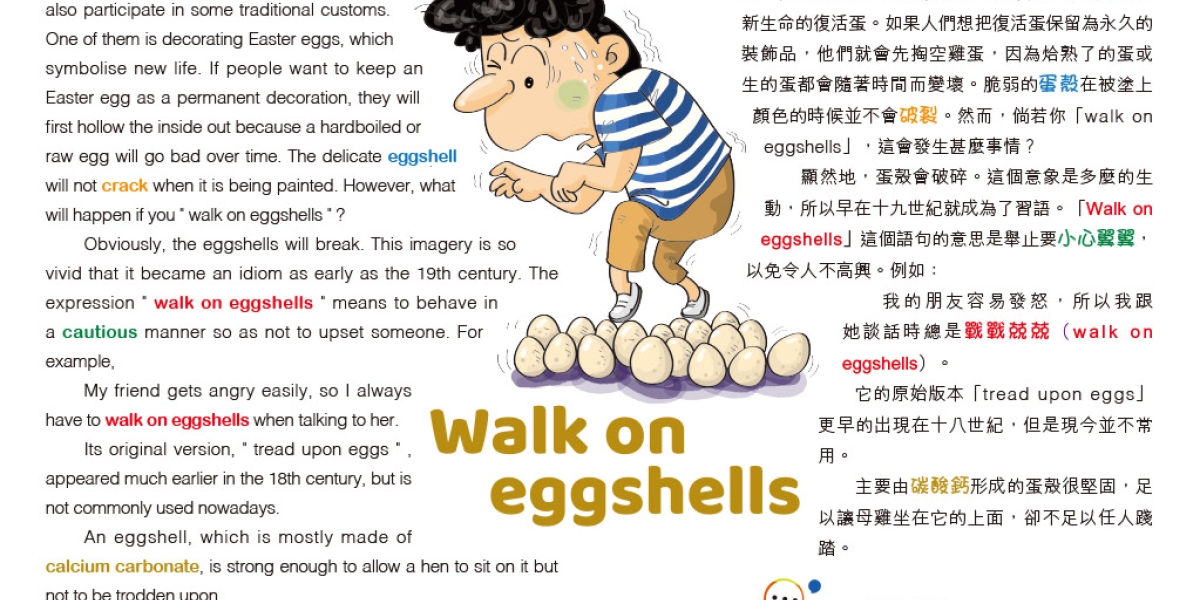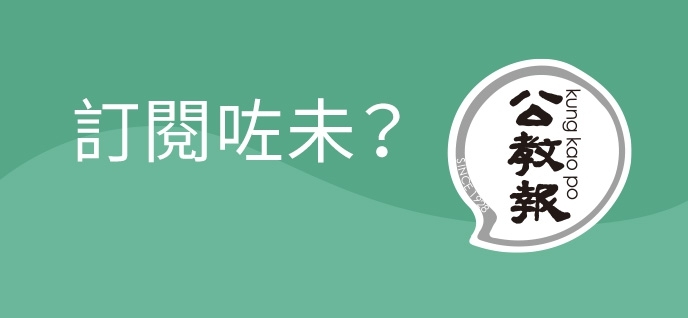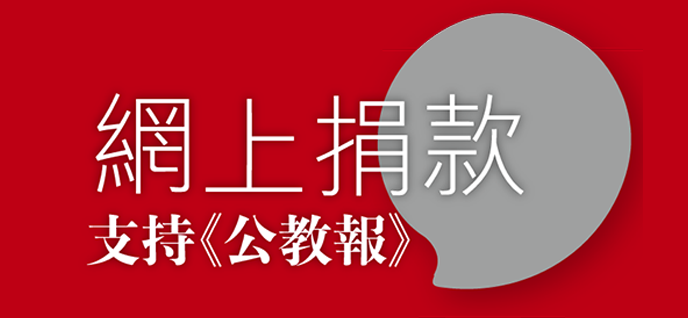
Walk on eggshells
In two weeks, Christians will celebrate the Resurrection of Jesus on Easter Sunday. They also participate in some traditional customs. One of them is decorating Easter eggs, which symbolise new life. If people want to keep an Easter egg as a permanent decoration, they will first hollow the inside out because a hardboiled or raw egg will go bad over time. The delicate eggshell will not crack when it is being painted. However, what will happen if you " walk on eggshells " ?
Obviously, the eggshells will break. This imagery is so vivid that it became an idiom as early as the 19th century. The expression " walk on eggshells " means to behave in a cautious manner so as not to upset someone. For example,
My friend gets angry easily, so I always have to walk on eggshells when talking to her.
Its original version, " tread upon eggs " , appeared much earlier in the 18th century, but is not commonly used nowadays.
An eggshell, which is mostly made of calcium carbonate, is strong enough to allow a hen to sit on it but not to be trodden upon.
兩個星期後,基督徒會在復活主日慶祝耶穌復活。他們也參與一些傳統習俗。其中之一是裝飾象徵新生命的復活蛋。如果人們想把復活蛋保留為永久的裝飾品,他們就會先掏空雞蛋,因為烚熟了的蛋或生的蛋都會隨著時間而變壞。脆弱的蛋殼在被塗上顏色的時候並不會破裂。然而,倘若你「walk on eggshells」,這會發生甚麼事情?
顯然地,蛋殼會破碎。這個意象是多麼的生動,所以早在十九世紀就成為了習語。「Walk on eggshells」這個語句的意思是舉止要小心翼翼, 以免令人不高興。
例如: 我的朋友容易發怒, 所以我跟她談話時總是戰戰兢兢( walk on eggshells)。
它的原始版本「tread upon eggs」更早的出現在十八世紀,但是現今並不常用。
主要由碳酸鈣形成的蛋殼很堅固,足以讓母雞坐在它的上面,卻不足以任人踐踏。

捐款支持公教報 http://kkp.org.hk/donation






